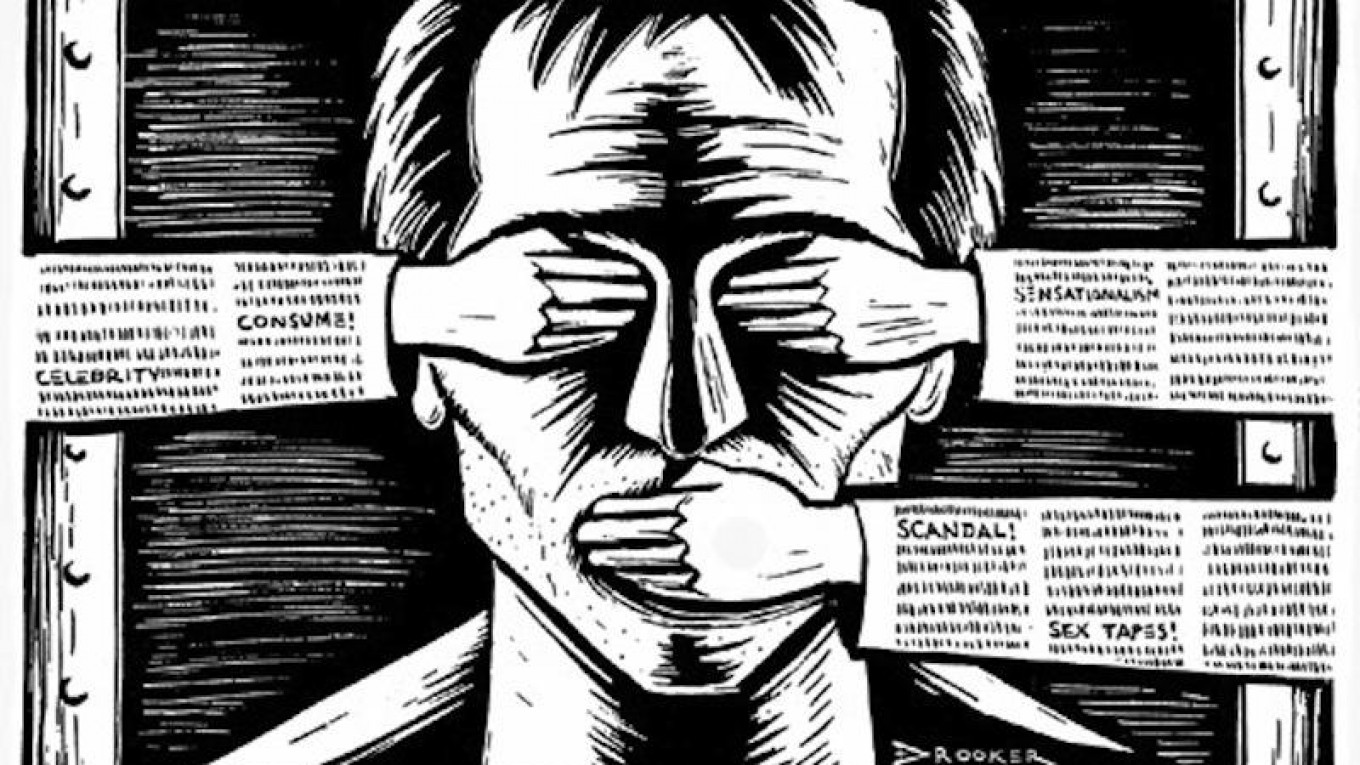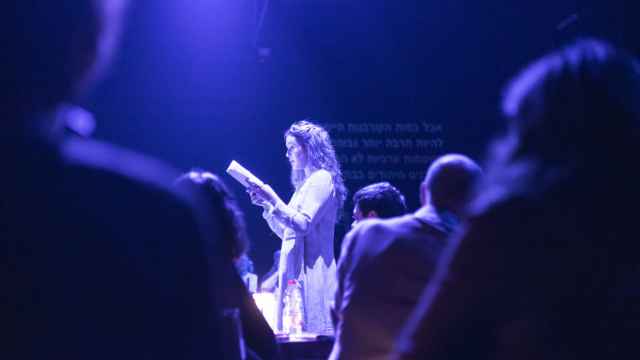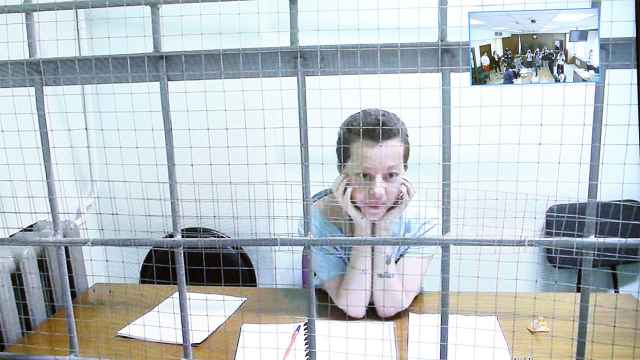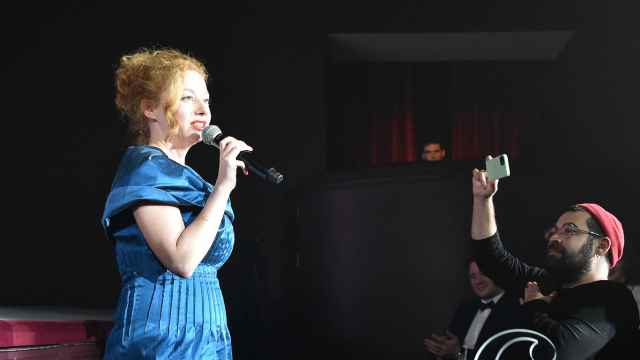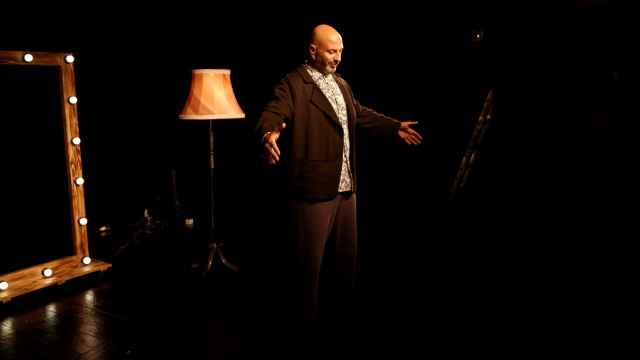On Monday Oct. 24 Konstantin Raikin, director of the Satirikon Theater and one of Russia’s most celebrated actors, gave a short, fiery speech at the 7th Congress of the Union of Theater Professionals, which was later put on social media by the Associations of Theater Critics.
Visibly agitated, Raikin called on the theatrical community to put aside its differences and form a united front against censorship. He lambasted citizens’ groups who have succeeded in banning or closing cultural events under the pretext of supporting “morality in the arts.” Most recently, a production of the rock opera “Jesus Christ Superstar” was prohibited in Omsk after an Orthodox Christian group called it “blasphemy.”
“I don’t believe those groups of people who say that are upset and offended,” Raikin said, “I don’t believe them! I believe that they are paid. These are small groups of nasty people who fight for morality in illegal, nasty ways.”
He spoke against the “curse of censorship” that had plagued Russia for centuries. “Art has enough filters in the directors, artistic directors, critics, and the souls of the artists themselves,” he said. “They are the bearers of morality. Stop pretending that the authorities are the only bearers of morality. That’s not true.”
His strongest criticism was of government censorship. “Our superiors say, ‘We pay you money, you do what you need to.’ But who knows what that is? They know what is needed? Who is going to tell us? Today I hear, ‘Those values are alien to us. They are harmful for the nation.’ Who decides that? Are the authorities going to? They shouldn’t get involved in this at all. They should be supporting art and culture.”
Raikin railed against a return to the worst of the Soviet past. “Some people are clearly itching to make changes and turn back time. And not just go back to the period of stagnation [the late Brezhnev period], but further back in time, to the Stalinist period. Our immediate superiors use Stalinist lexicon — Stalinist phrases — you can’t believe your ears! Representatives of the government, my immediate superiors, Mr. Aristarkhov [first deputy minister for culture] speaks that way. He really needs to be translated from his Aristarkhov-ese into Russian because he’s using language that is simply disgraceful. It’s disgraceful that a person speaks that way on behalf of the Culture Ministry.”
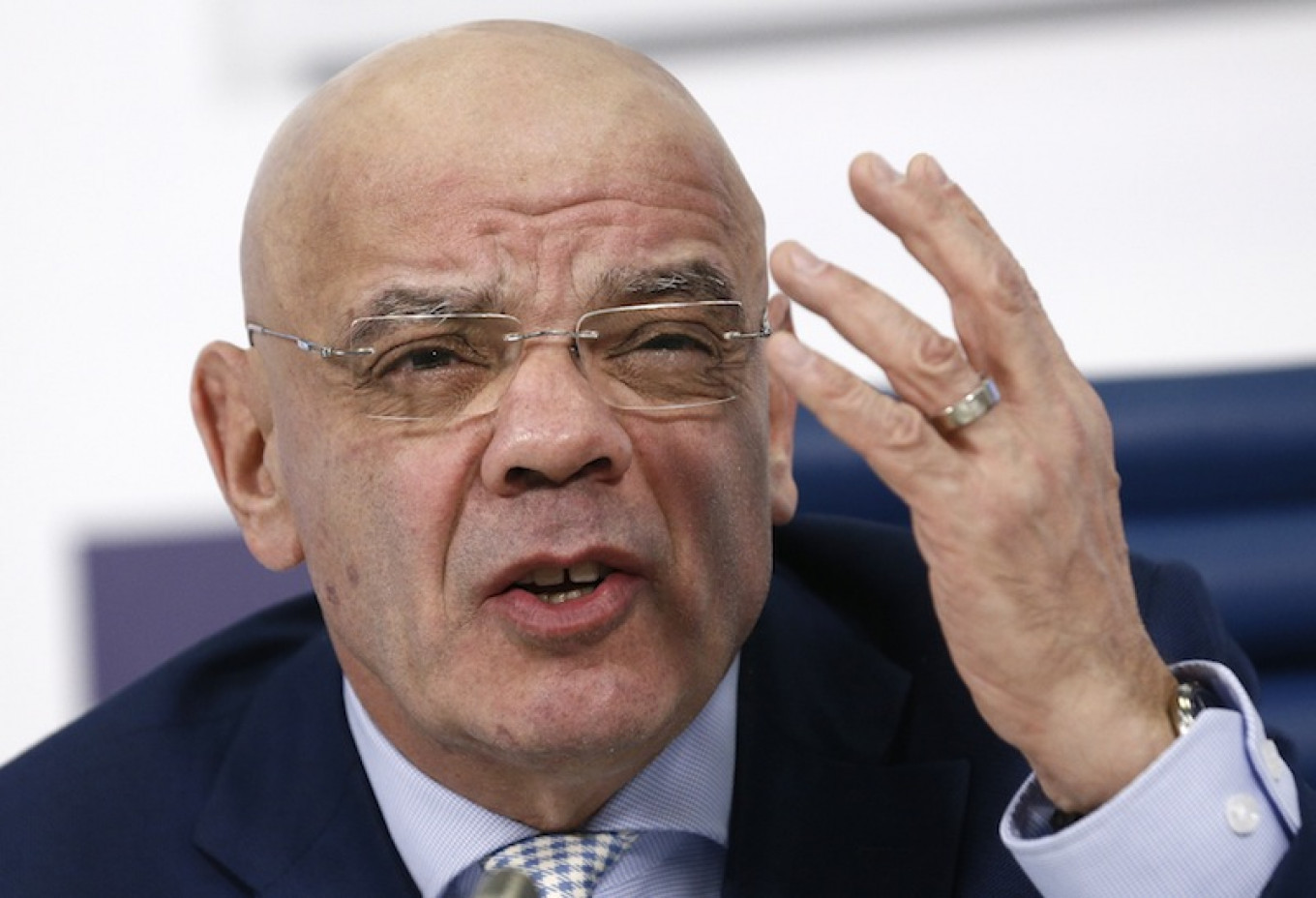
Raikin’s speech seemed to catch everyone by surprise. The next day Kirill Serebrennikov, artistic director of Gogol Center, supported Raikin’s call for solidarity in a comment to the online news service, Life.ru. “Even though there are attempts to make us quarrel among ourselves, it doesn’t always work because people in the arts know that the enemy in this case is the reactionary bureaucracy. That’s dangerous, and you have to fight against it.”
In the same article, Kirill Krok, director of the Vakhtangov Theater, said he was against state censorship but supported the “self-censorship of an artist. Art should censor itself.” He also said he had not heard any Stalinist terminology used by state officials.
But by the second day, the pages of the newspapers and social media were filled with comments, counter-comments, and arguments.
Presidential spokesperson Dmitry Peskov weighed in against censorship “as such.” In comments reported by several news agencies, he said that when the state provides financing for culture, it has the right to determine the content. “This isn’t censorship,” he said, “Censorship should not be confused with a state commission.”
Peskov’s statement was then taken up by film director Andrei Zvyagintsev, whose movie “Leviathan” was nominated for an Oscar in the category of Best Foreign Film in 2014. In a column for the Kommersant newspaper, he wrote, “It’s completely obvious that censorship is a full-fledged part of the cultural life of the country. Only a liar or someone totally ignorant could deny it. Bans on plays, bans on exhibitions, bans on the publication of texts — what is this but censorship? It’s just unbelievable how easily concepts are substituted these days. No one even blinks. We say: ‘That’s censorship.’ They say, ‘That’s a state commission.’ And then they even tell us not to confuse the two.”
Zvyagintsev’s strongest criticism was directed at Peskov’s comments about state funding. “They have forgotten — with amazing ease they have deleted from their minds the simple and obvious fact that it’s not their money, but ours. It belongs to all of us. The money they use to ‘commission’ their agitprop comes from the people.”
Later, the leader of the biker group Night Wolves, Alexander Zaldostanov, aka the Surgeon, commented on Raikin’s speech. “The devil always tempts people with freedom! And under the guise of freedom those Raikins want to turn the country into a sewer flowing with filth.”
On Thursday Peskov continued the argument in the press, telling Kommersant that Zvyaginstev was absolutely wrong about bureaucrats and state funding of the arts. “Bureaucrats use government funds in the interests of the government,” he said, and used the example of the campaign against smoking. “The state has the right to say that people shouldn’t smoke in the movies that they are funding. Can you call that censorship? No, you can’t.”
Peskov also called on Zaldostanov to apologize to Raikin. “We have boundless respect for Raikin’s talent, and I think that the devil just led astray that biker who insulted him.”
A Message from The Moscow Times:
Dear readers,
We are facing unprecedented challenges. Russia's Prosecutor General's Office has designated The Moscow Times as an "undesirable" organization, criminalizing our work and putting our staff at risk of prosecution. This follows our earlier unjust labeling as a "foreign agent."
These actions are direct attempts to silence independent journalism in Russia. The authorities claim our work "discredits the decisions of the Russian leadership." We see things differently: we strive to provide accurate, unbiased reporting on Russia.
We, the journalists of The Moscow Times, refuse to be silenced. But to continue our work, we need your help.
Your support, no matter how small, makes a world of difference. If you can, please support us monthly starting from just $2. It's quick to set up, and every contribution makes a significant impact.
By supporting The Moscow Times, you're defending open, independent journalism in the face of repression. Thank you for standing with us.
Remind me later.



